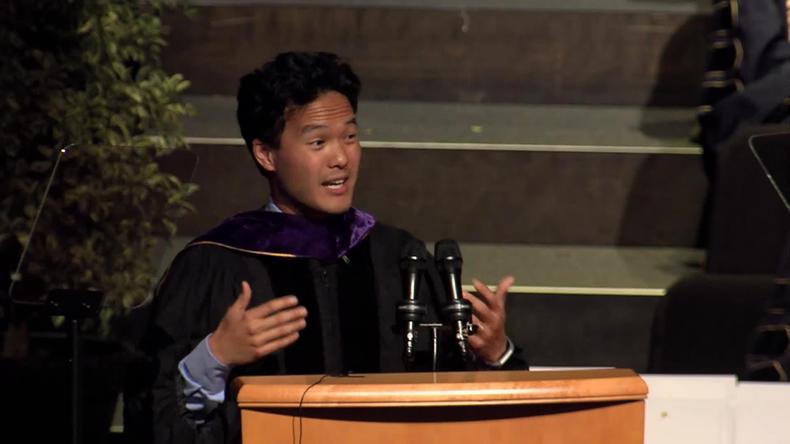Will Team Biden Weaponize Workers’ Pensions?
Big Labor abuse of worker pension and benefit funds as a means of advancing union bosses’ self-aggrandizing policy objectives is a familiar phenomenon.
Favorite Excuse For Forced Union Fees Is Bunk

Pro-Organized Labor Law Professor Eviscerates ‘Benefit’ Canard
To justify their opposition to Right to Work laws and their support for compulsory union financial support, union officials and their allies invoke, time and again, Section 9(a) of the National Labor Relations Act and parallel provisions in other federal statutes and state statutes.
Section 9(a) authorizes and promotes control by a single union over all workers in a unionized business or other “bargaining unit.”
Under Section 9(a), as one scholar has explained, unions “become the exclusive (monopoly) bargaining agents of all workers in the unit, whether individuals agree or not. Individuals are even forbidden to represent themselves.”
Human Workers ‘Are Not Interchangeable Numbers In a Bank Account’
One simple and obvious response to the union hierarchy’s demand for forced union dues and fees is to advocate repeal of Section 9(a) and other labor-law provisions of its ilk, and their replacement with provisions establishing that unions would represent their members only.
This is indeed the National Right to Work Committee’s longstanding position.
Big Labor’s case for compulsory union financial support is fundamentally flawed.
It ignores the plain fact that human workers “are not interchangeable numbers in a bank account.”
Indeed, Aaron Tang, a California law professor who fervently supports monopolistic unionism, used those exact words to dismiss the “union benefit” or “free rider” claim in a 2018 contribution to the Harvard Law Review.
Award-Winning Teacher Could Likely Have Earned More Without a Union
Professor Tang rejected Harvard law professor and former union lawyer Ben Sachs’s far-fetched assumption that the fact that some employees benefit economically from being subject to union monopoly control somehow implies that all employees benefit.
To illustrate the point, Mr. Tang cited the case of Sean McComb, a “Baltimore English teacher who was named National Teacher of the Year in 2014” at the age of 30.
“As a then-eighth year teacher with a master’s degree,” noted Mr. Tang, Mr. McComb “earned an annual salary of $65,663 courtesy of the lockstep salary schedule negotiated” by teacher union bosses in Baltimore County.
Had no union wielded monopoly control over Baltimore County schools, and had Mr. McComb “been free to negotiate an employment contract with the school district individually,” it is easy to imagine he would have earned as much or “more, given the higher salaries paid to less decorated teachers in the district.”
National Right to Work Committee Vice President Matthew Leen commented:
“As gifted as he undoubtedly is, Aaron Tang, a former law clerk of U.S. Supreme Court Justice Sonia Sotomayor, is no friend of the individual employee’s freedom of choice.
“As he makes plain in the very journal forum in which he eviscerates the ‘union benefit’ canard as formulated by Mr. Sachs, Mr. Tang supports the expansion of so-called ‘exclusive union representation,’ even though he understands perfectly well how it harms talented and conscientious employees.”
Forced-Unionism Advocates Can’t Explain Why Union Dons Merit Special Privileges
Mr. Leen continued:
“Because federal law and the laws of many states empower union bosses to force their representation on workers who don’t want a union, Big Labor apologists contend, union bosses also ought to be legally empowered to compel unwilling workers to pay union dues or fees.
“Ever since the Right to Work challenge to compulsory union membership and dues and fees emerged during the early 1940’s, this cockamamie ‘union benefit’ argument has been the mainstay of opponents of voluntary unionism.
“Most people inside and outside academia who share Mr. Tang’s collectivist ideology try to sidestep the question of why Big Labor should be granted what amounts to taxation power over workers by denying that forced union dues and fees are a special privilege.
“Aaron Tang is honest enough to admit the truth, while suggesting union bosses should still be specially privileged because it’s in the public interest for unions to be powerful.
“But which genuine interests of society as a whole or workers in particular are advanced by unions that have the power to deny a worker the ability to negotiate his or her own contract even if the worker could get paid more that way? I submit the answer is, ‘None.’”

Big Labor abuse of worker pension and benefit funds as a means of advancing union bosses’ self-aggrandizing policy objectives is a familiar phenomenon.

Leaked CTU Proposals Won’t Do Anything to Improve Schools’ Poor Performance

What impact does handing a union monopoly power to deal with your employer on matters concerning your pay, benefits, and work rules have on your pay?